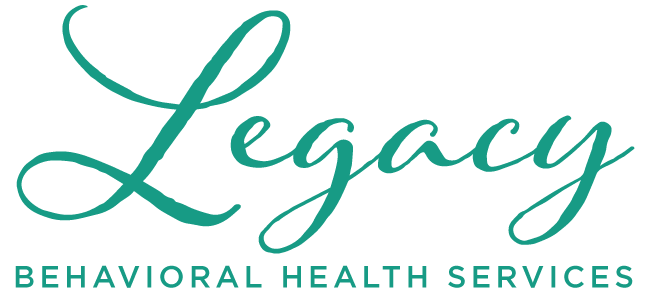Legacy Behavioral Health Services provides a full array of mental health services to adults 18 years of age and older with behavioral and psychiatric disorders. Individuals can be evaluated to determine specific treatment that may be needed, including group, family and/or individual counseling.
Supported Employment
Supported Employment (SE) services are available to eligible individuals who express a desire to work and have a goal for competitive employment in their Individual Recovery Plan (IRP); and who, due to the impact and severity of their mental illness, have recently lost employment, or been underemployed or unemployed on a frequent or long term basis. Services include support to access benefits counseling; identifying vocational skills and interests; and developing and implementing a job search plan to obtain competitive employment in an integrated community setting that is based on the individual’s strengths, preferences, abilities, and needs.
Psychosocial Rehabilitation
Services consist of rehabilitation skills building, the personal development of environmental and recovery support considered essential in improving a person’s functioning, learning skills to promote the person’s self-access to necessary services and in creating environments that promote recovery and support the emotional and functional improvement of the individual. Services include: individual or group skills building activities that focus on the development of skills to be used by individuals in their living, learning, working, and social environments, problem solving and coping skill development, illness and medication self-management, prevocational skills, and recreational activities/leisure skills.
Peer Support
Peer Support provides those with serious and co-occurring mental illness structured activities that promote socialization, recovery, wellness, self-advocacy, development of natural support and development of community living skills. Activities are provided between and among individuals who have common issues and needs, are consumer motivated, initiated and/or managed, and assist individuals in living as independently as possible.
Peer Support
110 East 4th St.
Adel, GA 31620
Phone: 229-223-3263
Fax: 229-223-3264
Case Management Services
Case management provides help to individuals with persistent mental illness and/or co-occurring substance abuse issues that are seeking access to treatment and wanting to enhance their overall well-being. The case managers help individuals learn basic skills associated with personal health and wellness, medication management, promote daily living activities and achieving independence-directed goals.
Assertive Community Treatment (ACT)
Assertive Community Treatment (ACT) is an Evidence-Based Practice that is person-centered, recovery-oriented, and a highly intensive community-based service for individuals who have serious and persistent mental illness. ACT provides a variety of interventions twenty-four (24) hours per day, seven days a week. The service utilizes a multidisciplinary mental health team from the fields of psychiatric nurse, psychology, social work, substance use disorders and vocational rehabilitation.
Assertive Community Treatment Team
3120 North Oak St Ext, Suite B
Valdosta, GA 31602
Phone: 229-671-6112
Fax: 229-671-6751
PATH Program
Projects Assisting in Transitioning from Homelessness (PATH), offers services for individuals who have mental health and substance abuse illnesses by reaching out and engaging with homeless individuals and connecting them to resources available within the community. Individuals must engage in outreach services to get assistance.
High Utilization Management (HUM) Program
HUM provides support to individuals who experience challenges and barriers in accessing and remaining enrolled in desired community-based services and supports. Using a data-driven process, the HUM program identifies and provides assertive linkage, referral, and short-term care coordination for individuals with behavioral health challenges who have a demonstrated history of high crisis service utilization. The program offers support, education, and navigation to assist at-risk individuals who could benefit from the removal of barriers to accessing community-based treatment.
Medication Assisted Treatment (MAT) Program
The Medication Assisted Treatment for Opioid Use Disorder Program (MAT Program) is a multifaceted approach to treatment for individuals who need structure and assistance to achieve and sustain opioid use disorder recovery. The MAT Program combines medication and therapy, with the help of behavioral treatments to address the underlying issues that contributed to the addiction. Medication Assisted Treatment uses evidence-based approaches, a focus on recovery, and stabilization of the person treated in order to decrease cravings, boost retention, emphasize healthy living, lower the danger of infectious diseases, and decrease the likelihood of overdosing.
